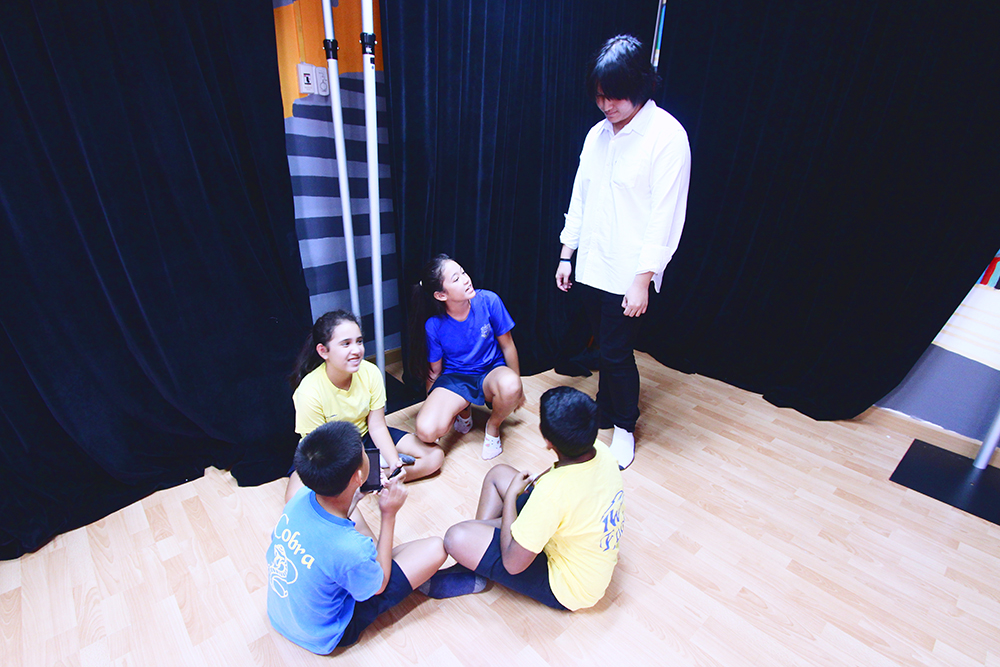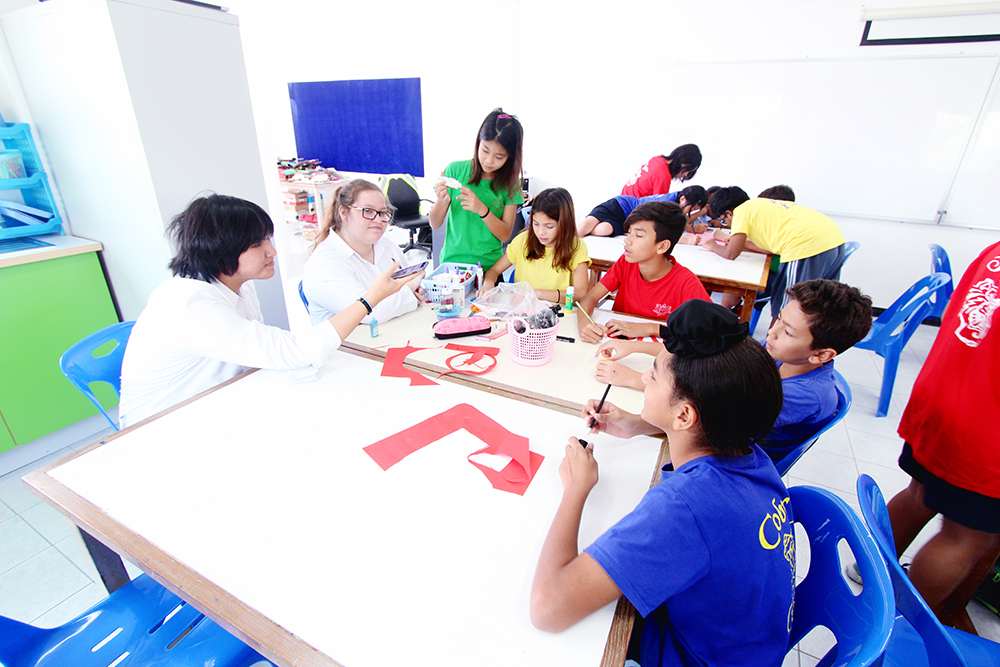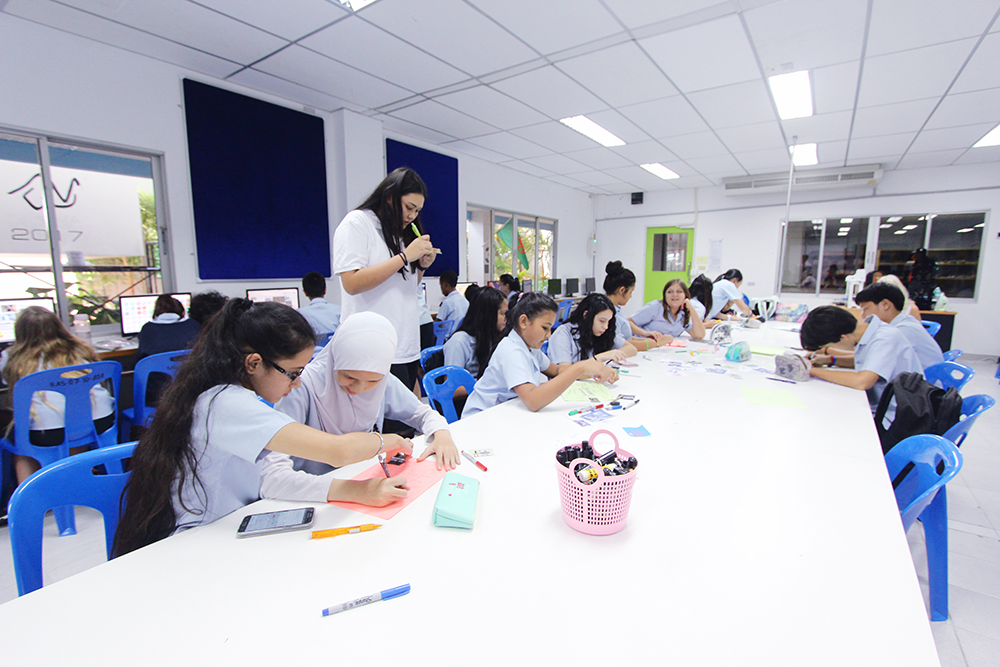IB students from Garden International School (GIS) helped younger pupils learn about online safety as part of their lessons.
The International Baccalaureate (IB) Diploma students, who are studying Information Technology in a Global Society (ITGS), came up with three mornings of activities for Years 7-9. These were part of the Personal, Social and Health Education (PSHE) lessons.
The activities involved looking at how to stay safe on social media, what to be aware of and how to ensure students took steps to remain safe when online. Feedback from the Years 7 to 9 students was very positive.

Top 10 online safety tips (by GIS students)
- Remember to keep the location services (GPS) on any smartphone, tablet, lap-top etc., turned off most of the time. This prevents people from tracking your movements and finding out where you are.
- Before agreeing to anything, look through the key clauses of the Terms and Conditions. You don’t need to read the whole document – just get an understanding by skim reading.
- Sexting can have a negative effect on one’s future by leaving a Digital Tattoo. For example pictures or messages could resurface just when a person is applying for job applications or even universities. This could result in them not getting in.
- Think twice before using the Dark Net. People trade in illegal products such as drugs, weapons etc. there and because of this your computer could be bombarded with harmful viruses.
- Cyberbullying is real. If a person feels this is happening to them they should report it to a trusted adult, for example their parents or a teacher, or even tell their friends. Just getting support could help a person.
- Remember if you delete something from your social media, that image or status is not really deleted, which then creates a digital tattoo, or footprint. So be careful what you post for the world to see.
- Be cautious of people online. Remember some people are not who they say they are and even pictures can be fake. Teenagers and pre-teens, if they are going to talk to a stranger online, should remember to never give out any personal information.
- Even though users cannot sometimes see each other, remember to treat everyone online as you would like to be treated in real life. People online tend to have different personalities than how they are in reality. Just because you are behind a screen does not mean that a person should turn into a barbarian.
- This one is for parents or guardian of teenagers and pre-teens regarding their social media. Most social media apps or sites do have age restrictions (often 13 years old) so do regulate what they post.
- Internet addiction is a real thing. Remember there is a world beyond a small rectangular screen. What is the better option: liking someone’s post about how much fun they had at the beach or actually going to the beach to experience it for yourself?






